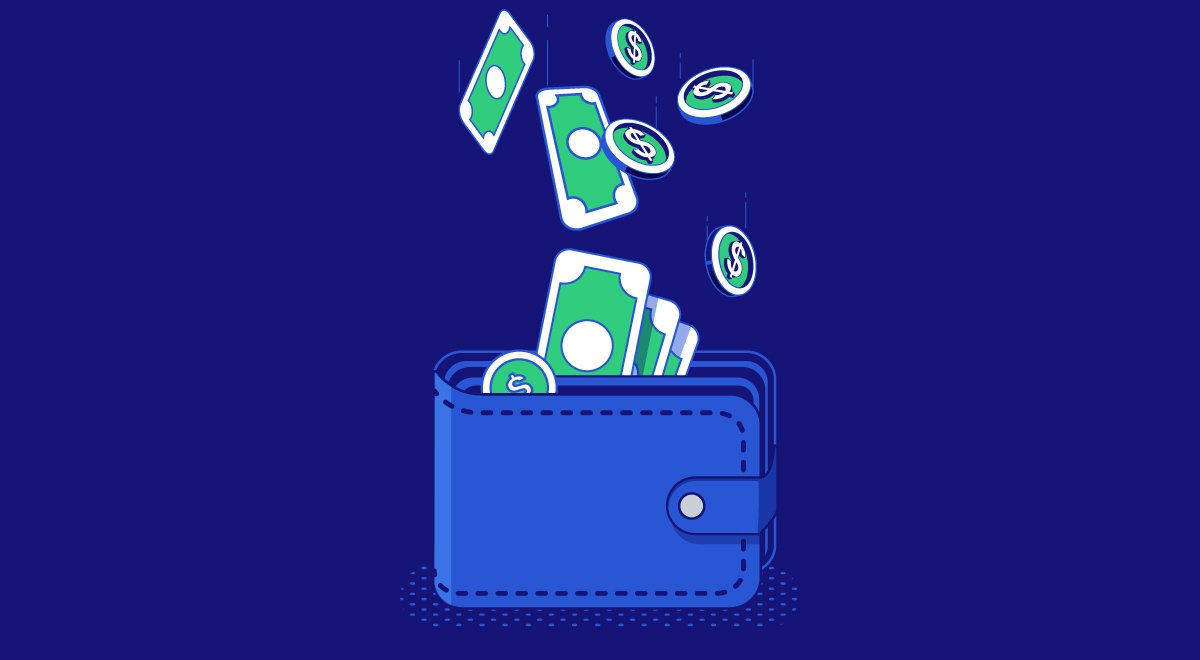At one time or another, we all live on a tight budget. Perhaps you have a job out of college with a modest salary that barely covers the rent and student loan payments. Or, maybe you need to tighten the purse strings after your first child is born.
But even when money is tight, you can still find ways to save. That can be true even if you’re struggling to pay off credit card debt.
“Patience is the key to saving and budgeting at all times, even when you are in debt,” says Matt J. Goren, a Certified Financial Planner and assistant professor of financial planning at The American College of Financial Services in King of Prussia, Pennsylvania.
“The hardest parts of this journey are being patient and staying focused,” he says.
Here’s How To Save Money Even If You Are In Debt
When money is tight, there are two ways to get your hands on more green: spend less or earn more. Here are 10 ways you can achieve your savings goals — even if you’re in debt.
1. Rank your expenses, then cut down on your spending money
“Creeping debt is often the result of little monthly expenses that pile up over time. To get a better grip on those costs, make a list of them,” Goren says.
“The first step is to rank your expenses from the most to least costly every month,” he says. “Cuts to these sorts of expenses will make a big impact.”
For example, if you pay $100 a month in cable TV fees, eliminating that expense will save you $1,200 over the next year.
“Cuts here are usually done once and then stick,” Goren says.
2. Ask for a raise
One of the quickest ways to get your hands on more money is to ask for a raise or seek a promotion. And there may be no better time to ask than the present.
“The labor market is really tight right now,” Goren says. “That is good news for workers looking for higher pay.”
3. Find a side gig
If you can’t negotiate a raise, look for additional sources of income. After a year of job losses related to the pandemic, openings are suddenly everywhere. In early August, there were 10.1 million job openings; a new U.S. record.
That means there’s plenty of extra work if you want to bring in more income. A part-time job during evenings and weekends can go a long way toward building savings.
Or, you could take a more entrepreneurial approach and create your own side gig. For example, you could resell collectibles on eBay or clothing on Poshmark. Or, start a neighborhood dog-walking service. The possibilities are endless.
4. Rent out part of your home
If you have extra space in your home, turn it into a rental and seek out tenants. Or, convert a backyard accessory dwelling unit into an Airbnb oasis that will bring in steady income throughout the year.
You can even rent out an empty garage as a storage unit for someone in your neighborhood who has too much stuff and no place to put it.
5. Get rid of as much debt as possible
The best way to approach debt is to pay it off as quickly as possible. Even if you can’t pay it all off, pay down what you can, as soon as you can. Once you get rid of what you owe, it can free up additional money that you can apply toward a savings account.
If your budget is really tight, consider negotiating with your lenders to extend your repayment period and reduce monthly payments. You could also seek the help of a nonprofit credit counselor.
Or, work with a debt settlement company that can help you eliminate some of your obligations. Just make sure to carefully research any debt settlement company you use, so that you understand the risks and rewards.. Look for a company that charges low fees and doesn’t make unrealistic promises about what it can do for you.
6. Shop for better insurance rates
Once you settle on a company to insure your car, home or apartment, it can be tempting to just stick with the same policy year after year. But financial experts say this is a mistake.
At least once a year, you should compare rates to see if you can get a better deal on your coverage. That could put hundreds of extra dollars back into your pocket every year.
7. Eat at home
Home cooking is infinitely cheaper than eating in a restaurant or ordering takeout. If you work in an office, make your lunch at home to bring to the job. If you love to eat out, try to make that an occasional, special treat instead of a regular occurrence.
Not only will you save money by shopping at your local grocery store and prepping your own meals, but they’ll probably be healthier for you.
8. Contribute to your 401(k) and Health Savings Account (HSA)
Contributing to a 401(k) plan is a great way to boost short-term savings while also helping to ensure your long-term financial future.
Every dollar you put into a 401(k) is tax-deferred. That means you won’t pay tax on the money today, allowing you to tuck more wealth into savings that will grow for many years before you owe anything to Uncle Sam.
Plus, many employers match employee 401(k) contributions up to a specific amount. That puts even more cash into your savings pile.
If you have a high-deductible health plan and are eligible to contribute to a health savings account, do it. An HSA is one of the best possible ways to save. The money you contribute to your account is tax-deductible, it grows tax-free and you don’t pay taxes on withdrawals if you use the money for qualified health expenses.
That combination is tough to beat.
9. Find ways to save on your rent or mortgage
Chances are good that your rent or mortgage payment is the single greatest expense you carry month to month. So, reducing this cost can go a long way toward increasing your savings.
If your rental is too expensive, try to find something cheaper when your lease expires. “Moving from a $1,500 to a $1,200 apartment will save about $3,600 a year,” Goren says.
If you have a mortgage, see if you can refinance and lower your monthly payment.
Goren acknowledges that cutting these expenses can be more difficult than simply trimming your cable TV bill, but adds that if you can find ways to reduce your housing costs, “those cuts can save even more.”
10. Adjust your paycheck withholdings
Getting a fat tax refund each spring can be counterproductive. If you’re in debt, it makes little sense to have the government taking too much of your money all year just so Uncle Sam can pay it back to you at tax time.
Instead, adjust your paycheck withholding so that less money is going to the government during the year. The IRS has a Tax Withholding Estimator that can help you determine if this is the right course for you.
If the numbers add up, adjust your withholding and use the extra money to pay down debt, put towards an emergency fund or both.
Stick with the plan, build on it and be more conscious about your personal finances.
Once you’ve used any or all of the ideas on this list, continue to look for additional ways to save.
“Try to look about five years ahead. Where do you want to be then?” Goren asks.
He suggests looking for people who are living that life now and trying to learn more about how they got to where they are. Then, look backward. In other words…
“Where do you need to be in three years? In one year? In one month? Today?” he asks. “Break up the journey into small, achievable steps and do what you can now.”
At National Debt Relief, we take pride in empowering people to regain their financial stability through our proven debt relief program. Contact us and talk to a financial expert who will work with you to find the best option to settle your debt and help you achieve financial independence.







